Introduction
Ticking, a mesmerizing dance move that falls under the umbrella of funk styles, has captivated dancers and audiences alike with its precise, robotic-like movements. This unique technique involves isolating different parts of the body and moving them in sharp, rhythmic patterns that resemble the ticking of a clock. Ticking is not just a dance move; it’s a visual representation of music, transforming beats and rhythms into a series of captivating, mechanical motions. As a fundamental element in funk styles, ticking has evolved to become a crucial component in various urban dance forms, including popping and animation. Its versatility allows dancers to incorporate it into routines, freestyle performances, and even as a standalone showcase of control and precision. Whether you’re a seasoned dancer or a curious beginner, understanding and mastering ticking can add a powerful dimension to your dance repertoire.
Video Demonstration
Dance History
Ticking emerged as a distinct dance move in the 1970s, during the golden era of funk music and dance in the United States. While it’s challenging to attribute its creation to a single individual, ticking developed organically within the street dance communities of California, particularly in cities like Fresno and Los Angeles. It evolved alongside other funk styles like popping and locking, becoming an integral part of the funk dance vocabulary.
The move gained prominence through pioneers of funk styles such as Boogaloo Sam and Popin’ Pete, who incorporated ticking into their performances and helped popularize it. As funk styles spread across the country and eventually the world, ticking became recognized as a distinct technique, valued for its ability to create visually striking effects that perfectly complemented the staccato rhythms of funk music.
Over the decades, ticking has been refined and expanded upon by successive generations of dancers, each adding their own interpretations and variations. Today, it remains a fundamental skill in funk styles and continues to influence modern dance forms, including hip-hop and contemporary dance.
Step By Step Instruction
1. Start in a relaxed standing position with your feet shoulder-width apart.
2. Choose a body part to isolate (e.g., your head, shoulder, or hand).
3. Tense the chosen body part, creating a locked, rigid position.
4. Move the isolated part in a small, sharp motion, as if following the tick of a clock.
5. Immediately return to the starting position with equal sharpness.
6. Repeat this motion rhythmically, matching the beat of the music.
7. Practice maintaining stillness in the rest of your body while ticking.
8. Gradually increase speed and complexity by incorporating multiple body parts.
9. Experiment with different directions and patterns of movement.
10. Combine ticking with other funk style moves for more dynamic performances.
Tips For Learning
• Start slow and focus on precision before increasing speed.
• Practice in front of a mirror to observe and refine your movements.
• Use a metronome or music with a clear beat to help maintain rhythm.
• Isolate different body parts individually before combining them.
• Incorporate breathing techniques to help with muscle control and endurance.
• Study videos of experienced dancers to understand the nuances of ticking.
• Practice regularly, even if just for a few minutes each day, to build muscle memory.
• Experiment with different intensities of ticking, from subtle to exaggerated movements.
• Collaborate with other dancers to share techniques and receive feedback.
• Be patient and persistent; mastering ticking takes time and dedication.
Conclusion
Ticking is more than just a dance move; it’s a testament to the body’s ability to create art through precise control and rhythm. By mastering this funk style technique, dancers can add a captivating dimension to their performances, effectively translating music into visual form. Whether you’re looking to enhance your popping routine, add flair to your freestyle, or simply explore the boundaries of your body’s capabilities, ticking offers a unique and rewarding challenge. Remember, the key to excelling in ticking lies in consistent practice, attention to detail, and a willingness to push your limits. So, start ticking, and watch as your dance skills tick up to the next level!
More Funk Style Dance Moves
Mastering the Art of Waving: A Fluid Funk Style Dance Move
IntroductionWaving is a mesmerizing dance move that has captivated audiences for decades. This iconic element of funk style dancing creates an illusion of a wave passing through the dancer's body, resulting in a fluid and hypnotic visual effect. Originating from the...
Mastering the Art of Tutting: A Geometric Dance Revolution
IntroductionTutting, a mesmerizing dance style that transforms the human body into a living, breathing geometric puzzle, has captivated audiences worldwide with its precise angles and intricate hand movements. This unique form of dance, rooted in the funk styles of...
Mastering the Toyman: A Funky Twist on Popping Dance
IntroductionToyman is a captivating and playful dance move within the funk style family, specifically associated with popping. This unique technique transforms dancers into living, moving toys, creating an illusion of mechanical, jerky movements reminiscent of wind-up...
Mastering the Funk: A Comprehensive Guide to Strutting Dance Move
IntroductionStrutting, a cornerstone of funk-style dancing, is more than just a move—it's an attitude, a way of life. This iconic dance technique embodies the essence of confidence, rhythm, and self-expression that defines funk culture. Originating from the vibrant...
Mastering the Snaking Move: A Funky Journey Through Fluid Body Control
IntroductionThe Snaking move is a mesmerizing and fluid dance technique that has become a cornerstone of Funk Style dancing. This captivating movement involves creating a wave-like motion that travels through the body, typically starting from the head and flowing down...
Mastering the Sleepy Style: The Laid-Back Funk Dance Move That’s Taking the Scene by Storm
IntroductionThe Sleepy Style is a captivating and deceptively simple dance move that has become a cornerstone of funk-style dancing. This unique movement, characterized by its relaxed and seemingly effortless execution, perfectly embodies the cool, laid-back attitude...
Mastering the Shadow Box: A Funky Dance Move with Boxing Roots
IntroductionThe Shadow Box is a dynamic and visually striking dance move that originated in the funk style dance scene. This move combines the rhythmic footwork of boxing with the fluid, popping movements characteristic of funk dancing. The Shadow Box allows dancers...
Mastering the Scarecrow: A Funky Popping Dance Move
IntroductionThe Scarecrow is a captivating and distinctive move in the world of funk-style dancing, particularly within the popping genre. This unique dance technique draws inspiration from the iconic character in "The Wizard of Oz," mimicking the loose, puppet-like...
Mastering the Puppet: A Funky Dance Move That Pulls Your Strings
IntroductionThe Puppet is a captivating and iconic dance move that belongs to the vibrant world of Funk Style dancing. This mesmerizing technique creates the illusion that the dancer is being controlled by invisible strings, much like a marionette. The Puppet move is...
Mastering Popping: The Fundamental Move of Funk Style Dancing
IntroductionThe Pop is a foundational move in funk style dancing that has captivated dancers and audiences alike for decades. This iconic movement is characterized by a quick, sharp contraction of specific muscle groups, creating a 'popping' effect that appears to...
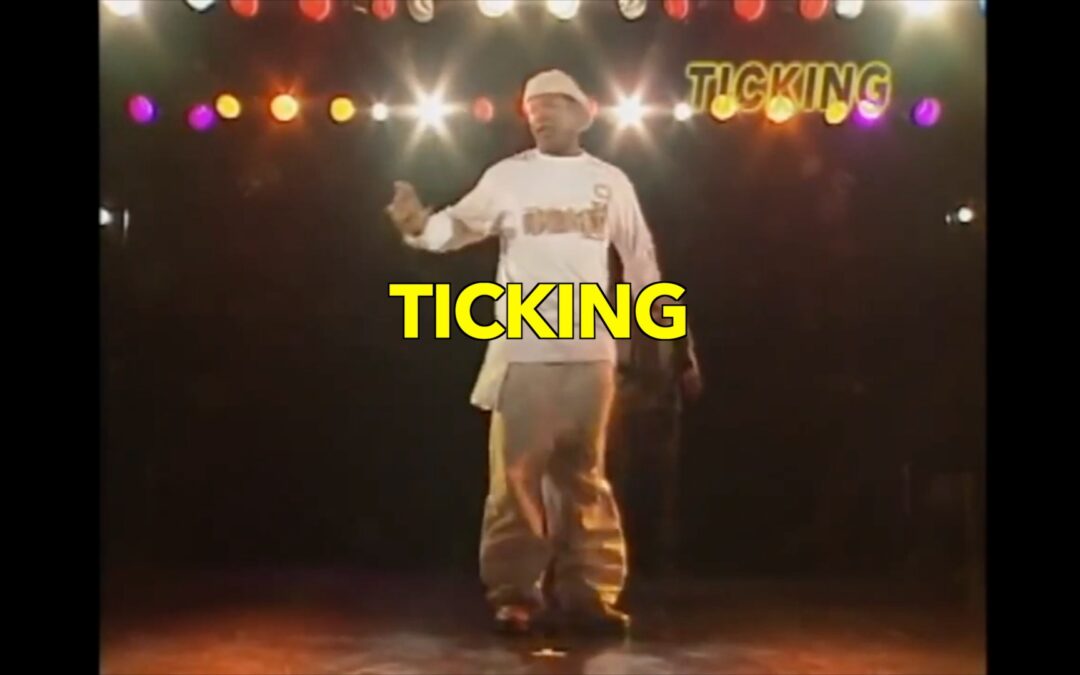
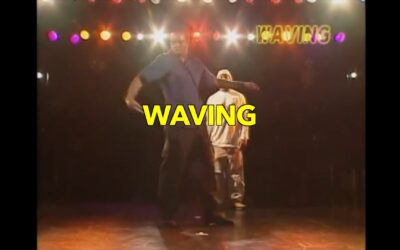


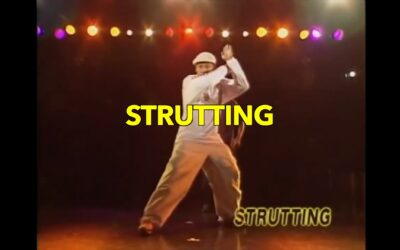


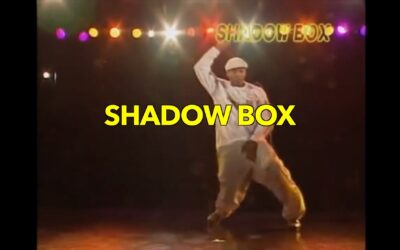
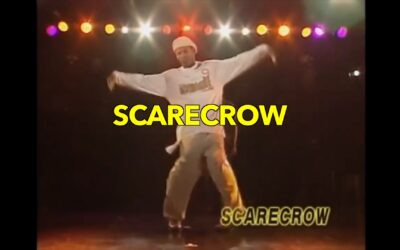

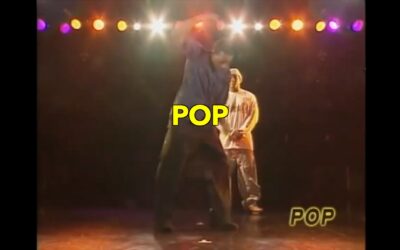
Recent Comments